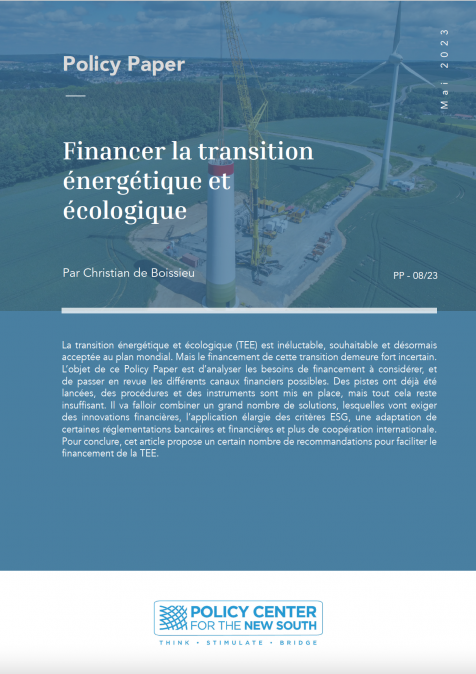Publications /
Policy Paper
The energy and ecological transition (EET) is inevitable, desirable, and now accepted worldwide. But how this transition will be financed remains highly uncertain. This Policy Paper analyzes the financing needs and reviews the different possible financial channels. Some avenues have already been launched, and procedures and instruments are being put in place, but all of this remains insufficient. Many solutions will have to be combined, and these will require financial innovations, the broader application of environmental, social, and governance (ESG) criteria, an adaptation of certain banking and financial regulations, and more international cooperation. This paper proposes several recommendations to facilitate the financing of EET.










